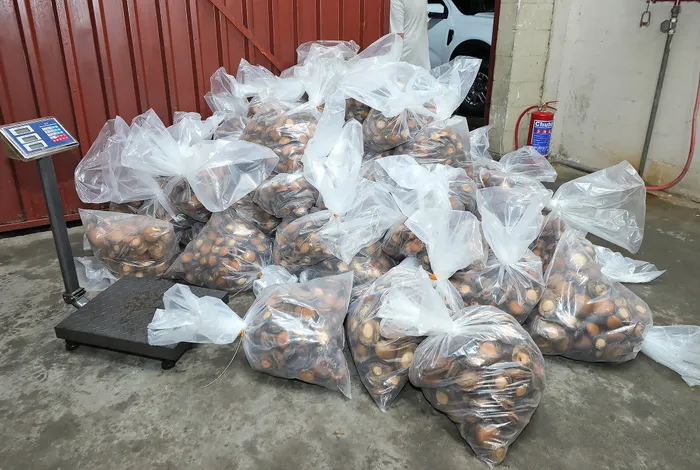Fighting back against abalone poaching: Strategies unveiled for sustainable fishing in South Africa

Abalone seized during an operation by police. On Friday, police uncovered 6,400 units of abalone worth an estimated R3.52 million in a drying facility in Primrose Park, Western Cape.
Image: Supplied
As police continue to uncover multimillion-rand poaching networks along the Western Cape, Forestry, Fisheries and the Environment Minister Dr. Dion George has said there needs to be a science-based and responsible approach in the abalone fishing industry.
On Friday, George finalised around 150 appeals from fishers seeking exemptions under the Marine Living Resources Act, a move he described as crucial to ensuring fairness, sustainability, and accountability in the sector.
The ministry said many of the appeals were dismissed after a “rigorous verification process” found that several applicants had breached conditions of their previous permits.
“I am deeply aware of the socio-economic realities facing fishers in the abalone sector,” the Minister said.
“However, we must also confront the fragile state of the abalone resource, suffering from years of overfishing and illegal harvesting. Its recovery demands a science-based and responsible approach.”
Abalone rights reverted to the State in 2014, forcing the government to issue annual exemptions to prevent a total shutdown of the fishery. While these temporary measures helped cushion economic shocks, they also coincided with the rise of organised criminal networks that turned abalone into a high-value commodity in the illegal wildlife trade.
Also on Friday, Operation Lockdown III and the Endangered Species K9 Unit uncovered 6,400 units of abalone worth an estimated R3.52 million in a drying facility in Primrose Park, Western Cape. Two foreign nationals, one Chinese and one Malawian, were arrested and will appear in the Athlone Magistrate’s Court on Monday.
The bust followed a major seizure in Rawsonville in September, when officers intercepted a truck carrying 13,341 units of abalone, valued at R3.3 million, en route to Cape Town. Two suspects were arrested and are set to appear in the Worcester Magistrate’s Court.
The minister has since directed his Department to review the sector’s management framework, exploring ways to formalise regulation while protecting both the resource and the livelihoods it supports. “Sustainable management is key to securing the future of South Africa’s abalone fishery,” he said.